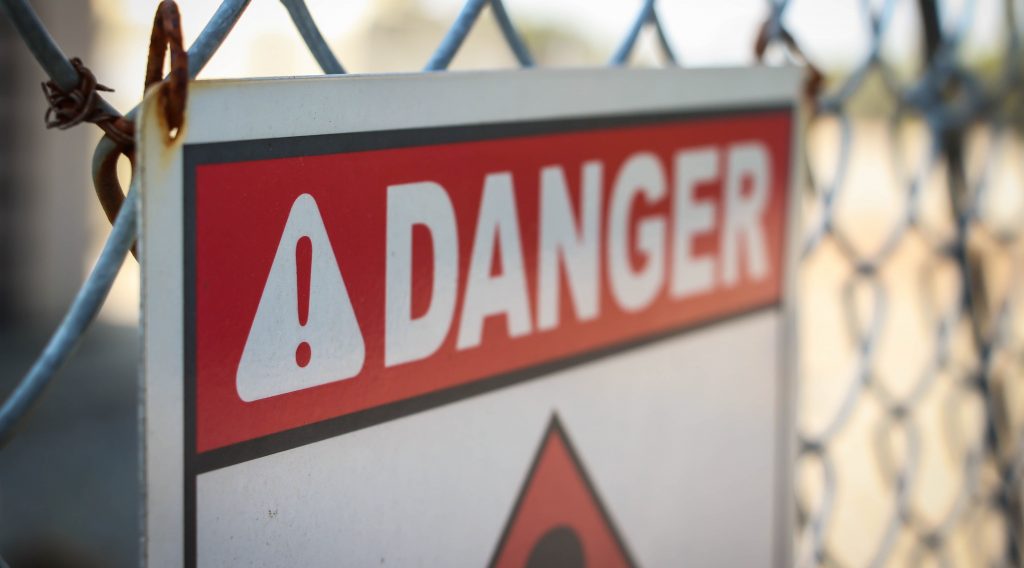Protect your team and yourself. Stay current with chemical safety topics that will help to keep your teams (and your clients) healthy.
On the surface, janitorial occupations seem safe. It’s strange to think that cleaning products, which are made to clean surfaces and instruments, could be harmful. But to be effective, those products have to fight dirt and kill germs, meaning that your employees need to know the ins and outs of critical chemical safety topics.
In fact, according to the National Census of Fatal Occupational Injuries, building and grounds cleaning and maintenance occupations account for 6.6 percent of fatal injuries each year. In that same report, they note that exposure to harmful substances accounted for 268 fatal occupational injuries. Those numbers could potentially be lower if cleaning workers are familiar with – and follow – guidelines that could help keep them safe from the often-dangerous substances they work with on a daily basis.
But how do you know which chemical safety topics are most important? Are there some that matter more than others? How can you train your team?

5 Chemical safety topics every janitorial employee should know
The first place to turn for relevant chemical safety topics is the Occupational Safety and Hazard Administration (OSHA). This federal administration regulates the health and safety practices of most businesses, and especially those in the cleaning industry. They provide guidance and statistics on all safety-related issues one might encounter in the workplace, including chemical safety.
In fact, OSHA authored an official Hazard Communications Standard (HCS) to help ensure chemical safety in the workplace. While the standard itself is quite long, there are a few chemical safety topics we can pull from it that your workers will undoubtedly want to think about each time they’re on the job.
Keep track of inventories and more with Janitorial Manager! Schedule a free demo to learn more.
1. Know your products
Knowing the ingredients of and differences between each chemical can help you stay safe. Substances like ammonia and chlorine are common in commercial cleaning solutions, but they can be harmful to the human body. That’s why OSHA recommends using all-purpose cleaners instead of sanitizers or disinfectants, when possible.
Green cleaning is also at the top of the list of chemical safety topics. Such cleaners are thought to be safer than traditional cleaning solutions. Most green cleaners use different chemicals to achieve the same or similar level of cleanliness as traditional cleaners, only without using the same harsh chemicals. Brushing up on green cleaners is an easy way to help keep employees and clients safe.
2. Understand how chemicals cause damage
Chemical safety topics for your teams should include the different ways a chemical cleaner may harm someone. There are more things to think about than merely touching the solution with your bare hands (which you shouldn’t do). You need to think about how you’re using and storing the product, whether or not there is sufficient ventilation in the room where it’s being used, whether mists or gases are released, or the consequences of spills or splashes.
3. Using protective equipment- properly
OSHA also provides guidance on the use of personal protective equipment (PPE), training that’s required for all new hires. Using things like masks, gloves, eye protection, and special outerwear, among other things, can significantly reduce the incidence of injury if you do come into contact with a chemical agent. Certain kinds of cleaning equipment may also require specific protective measures.
Provide this training whenever you hire a new employee, whenever you implement a policy change, and whenever you purchase new, unfamiliar equipment for your business.
4. Know how to store chemicals
One of the most neglected chemical safety topics is chemical storage. When chemical solutions sit, they continue to interact with other chemicals available to them, such as oxygen. These reactions may have dangerous results. It’s essential, then, to know where to safely store chemicals, whether or not they have temperature regulations, and how to dispose of hazardous or expired materials.
5. Clean up spills safely
Many chemical-related occupational injuries happen because of spills or other accidents. Knowing the protocol for cleanup is essential to staying safe from chemical spills. Employees should know what protective equipment to wear, where to dispose of the chemical, and whether or not any follow-up action needs to be taken.

The bottom line: Invest in training
As you can see, training is a huge component to educating employees on chemical safety topics. And while training may feel time-consuming, you may find it to be more costly to do without. Proper training means fewer mistakes, better health and all-around happiness for workers, and in some cases, a reduction in your insurance expenses.
The good news is that most training can be done more effectively and more cost-efficiently than you might think. Both you and your employees will be glad that you took the time to go over chemical safety topics ahead of time to make sure that, above all, everyone stays protected and healthy.
Make training easier with Janitorial Manager’s janitorial management software. Ask for a free demo to find out more!

